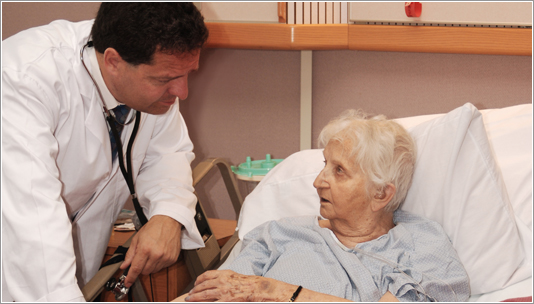

The Dirty Little Secret of Ageism in American Society
August 21, 2018 | by the National Care Planning Council
American society in general glorifies youth and fears or even despises old age. This is not the case in many other societies where age is associated with wisdom, knowledge and special status. We see evidence of this bias towards older Americans especially in the media. In films and on TV old people are very often depicted as weak, indecisive, bumbling or even comic. We laugh at their misdeeds and forgive their mistakes knowing in the back of our minds that they are old and can't help themselves. We view them not as capable as younger people. In fact, in literature and in the movies emphasis is put on youth and older folks are simply used to prop up the story.
It is rarely that we see older people depicted as decisive, strong or as leaders. We see this same attitude with large corporations and government employers. At a certain age, employees are encouraged or expected to "retire" to a new phase of their lives where they are not required to work for a living any longer. Retirement is presumably a reward for many years of dedication and hard work, but the underlying philosophy is more likely based on the idea that older workers are no longer productive or useful. The general attitude is that younger workers have more energy, more ambition and are more willing to work longer hours.
As Americans age we fear the deterioration of our bodies and the possible lack of security due to low income -- a byproduct of old-age. Some people in our country fight old age through cosmetic surgery, use of supplements, aggressive weight-loss programs or through overzealous physical training programs. Other people accept old age gracefully and adapt as well as they can. Still others refuse to grow old and resist aging by adopting social strategies such as denial, refusal to participate in life or becoming belligerent. (The angry old codger image)
Instead of taking the role as leaders in their families or in the community as is the case in some countries, the elderly in our country, even after successful careers in earlier years, simply become invisible. They waste their prodigious talents traveling, entertaining, socializing, watching TV or playing golf. They are rarely asked to assume responsible roles in the community. And unlike other cultures, older Americans often abandon themselves to control by other people, often their children and their health care providers. Instead of taking responsibility for their own decisions, they will rely on children or others to make decisions for them. Many of them seem to enjoy the role of becoming dependent on others. And it is all too often the case that family and others pander to this submissive role of the elderly and we begin treating them like children.
This generally accepted perception of aging in our country has resulted in the elderly themselves and in the community at large regarding older people as less valuable than younger people. The assumption is that the elderly have lost the ability to think clearly, to learn new things and they are generally incapable of any physical activity other than walking or sitting. This attitude also carries over into the health treatment that older Americans receive.
It is inevitable that medical care providers will unconsciously have this same attitude towards their older patients. As a result, if an older person has a medical complaint and the cause is not readily apparent, a medical practitioner is more likely to accept the condition as a consequence of old age and treat the symptoms with medication as opposed to aggressively trying to identify the problem. In younger people, if the medical complaint is interfering with normal daily function, typically a more concerted effort will be made to identify and correct the problem.
Consider the following anecdote:
A 90 year old man meets with his doctor and complains about pain in his right knee. The doctor tells him,
"Well Henry, what do you expect? You're 90 years old."
Henry replies, "But doctor my left knee is the same age as my right knee, there's no pain and it feels just fine!"
Many in the health-care profession consider old age to be a disease itself. Any medical problems are inappropriately attributed to old age as if it were a medical condition. And since there is no cure for old age, appropriate tests and treatment are never performed. Thus, medical problems that may not be related to age and may just as frequently occur in younger people are often not treated. As an example a recent survey of physicians involved in the health-care of the elderly reported that 35% of the doctors considered hypertension a result of the aging process and that 25% of them felt that treating an 85-year-old for symptoms of hypertension would cause more harm than the benefits it would produce.
